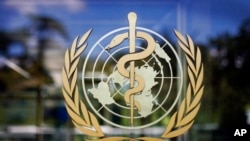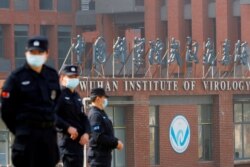The World Health Organization issued an open call Friday for international experts to serve on a new advisory group designed to monitor and trace the origins of emerging and reemerging pathogens with "pandemic potential," including the origins of the coronavirus that causes COVID-19.
In a statement on its website, the WHO cites dangerous diseases such as Middle East respiratory syndrome, Lassa fever and the hemorrhagic fever diseases Marburg and Ebola, along with COVID-19, as examples of the "clear need for robust surveillance and early actions for rapid detection and mitigation efforts" of emerging pathogens.
The WHO says this new team – known as the Scientific Advisory Group for the Origins of Novel Pathogens (SAGO) – will also provide the WHO Secretariat with an independent evaluation of all available scientific and technical findings from global studies on the origins of the COVID-19 coronavirus.
The organization says it is looking for 25 officials with relevant expertise to apply for membership to the new group by September 10.
The WHO's efforts to determine the origins of the COVID-19 coronavirus have been somewhat controversial. In March, a WHO-led team of international experts issued a preliminary report that deemed it "extremely unlikely" that the origins of the virus were linked to a laboratory in Wuhan.
The report was met with criticism from many who thought China interfered too much with the investigation and limited access to data. WHO Director-General Tedros Adhanom Ghebreyesus acknowledged last month that it was premature to rule out the lab leak theory, describing lab accidents as common.
And last week, Peter Ben Embarek, who led the WHO mission to China, said the lab hypothesis merited further study.
In its call for experts issued Friday, the WHO said SAGO would advise the WHO of the next series of studies into the origins of COVID-19 virus. It also said the group's work "needs to be scientific, transparent, comprehensive, rapid and inclusive."
Some information for this report came from the Associated Press.






